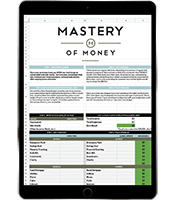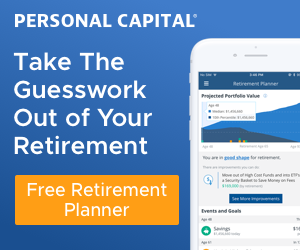An article by Michael Izbotsky CFP®
To be honest with you, I didn’t know what a financial advisor was until I was looking for my first “grownup” job after graduating college. When I first heard the term, I guessed they were all older men in their 50s and 60s wearing outdated (and often baggy) suits and working behind some desk at a local bank. My next guess was that they simply managed investments and only did so for older clients who had tons of money to invest. Well, what would you guess? It turns out that I was partially correct, yet happily mistaken.
While so many of these financial advisors still exist today, there is a growing number of financial advisors out there who do more than just manage investments and wear baggy suits. I call them financial planners. I was initially surprised to discover that there are thousands of financial planners who are part of the millennial generation, many of whom never wear suits and many of whom are women. This isn’t to say that a younger financial planner is necessarily better, but they are usually a lot more relatable to younger clients. And to be honest, I prefer to work with people I relate with and connect with on a deeper level.
You don’t need thousands, or even hundreds, of dollars to invest in order to work with an experienced financial planner. In fact, there are financial planners who manage no investments at all. And those who do manage investments generally include such services as an added benefit or add-on service to their clients. Yes, it really is possible to work with a financial planner without even having any investments to manage!
What do financial planners actually do?
Financial planners can be seen as one type of financial advisor. The most qualified financial planners are CERTIFIED FINANCIAL PLANNER TM professionals. In order to become a CFPⓇ professional, a financial planner must have a college degree, complete coursework in major financial planning areas, and complete three years of professional experience related to the financial planning process. In addition, they are required to pass a rigorous exam, which assesses their ability to apply their knowledge to various financial planning situations. You can learn more about this certification via the CFP Board.
The best way to look at a seasoned financial planner, especially one who offers ongoing services, is as your own personal CFO. They will know your financial life (and often personal life) inside and out. Rather than focus on one solution to a specific issue, a financial planner will focus on what is important to you in order to take you from where you are today to where you want to be.
I always start my new client relationships by asking three key questions:
- What is most important to you?
- What do you dread the most? And,
- What would you be doing today if money (or work) weren’t an obstacle?
Keep in mind that your answers to these questions will change overtime. It’s normal! Knowing these answers will give you a better sense of your goals and your priorities. This will help you and your financial planner with a place to start and where to put your focus.
The most common goals I come across are to:
- buy a home
- travel every year
- start a business
- retire early
- pay off debt (including student debt)
So I got my goals down. How can a financial planner take care of my immediate concerns?
When I start the financial planning process with my clients, we create a list of all the topics they want to go over and all the questions they want answered. From there we are able to prioritize and create an appropriate action plan.
The most common questions and topics I come across are:
- I have all this money saved up. What should I do with it? Where do I even begin?
- How do I pay off my debt while still saving and investing for other things?
- How do I make sense of all my company’s benefits? Which benefits, and how much, should I elect?
- My company offers stock options. What the heck are they? What do I do with them?
- We just started a family. How can we protect our family and safeguard our finances?
- What steps can I take to minimize my income tax liabilities?
Often financial planners offer continuous and ongoing support. This is a huge benefit if you need or want help beyond answers or analysis to your initial questions.
The most common ongoing support that financial planners provide:
- Answers to new questions that come up or solutions to problems that arise
- I was recently laid off. What next?
- I was in a car accident. Should I lease or buy my next car?
- There was an unexpected death in the family. What immediate steps should we take?
- Assistance in implementing recommendations and tackling to-do list tasks
- Help with account transfers, obtaining insurance coverages, beneficiary changes, etc.
- Access to professional referrals: CPAs, attorneys, etc.
- Joint meetings with your CPA, attorney, and other professionals
- Personal financial portal to view all accounts, goals, and progress
- Scheduled check-ins and progress updates
- Investment management services
- Consistent monitoring
- Account updates and stock market updates
- Appropriate rebalancing and changes related to your personal situation
Financial planning involves the following key areas:
- Overall Financial Analysis – this includes cash flow planning and spending strategies
- Insurance Planning and Risk Management – this includes home and auto insurance, health insurance, life insurance, disability insurance, and more
- Employee Benefits Planning – this includes which benefits to utilize and how to maximize them
- Investment Planning – this includes generating income, building travel funds, allocating investments, and more
- Income Tax Planning – this includes tax strategies to minimize tax liabilities for real estate, investment portfolios, inheritances, and your overall yearly tax liability
- Retirement Planning – this includes creating and preparing for your dream retirement and making sure your retirement assets last
- Estate Planning – this includes wills and trusts; ensuring your property and assets go to the people you want it to after death; medical directives; creating a legacy; donations to charities
I really don’t need to be rich or have money to invest to get all of this help?
Absolutely not! There are tons of financial planners who offer financial advice and planning for a fee only, regardless of your net worth. How is this possible? An increasingly popular way financial planners are working with clients is by charging a monthly subscription fee, which usually includes an initial set-up fee. With this you get an initial financial plan, access to your personal financial portal, and ongoing support. I have also found that because you are paying a monthly fee, a lot of these financial planners offer investment management services with a $0 initial investment. I like to think of this option as your ultimate personal CFO.
Other options include paying a financial planner an hourly rate or paying a flat fee per project. These options are great if you are looking for help in just a few areas or aren’t looking for much ongoing support and guidance. For instance, if open enrollment is around the corner and you aren’t sure how to maximize your and your spouse’s company insurance benefits; or you want to know how long it will take for you to afford a three bedroom home based on your current income. You can even pay a financial planner to create a model investment portfolio.
Where can I find these financial planners? How do I find the right one for me?
So many financial planners work virtually these days that you can easily work with one who is across the state or even the country! Being born and raised in Los Angeles, I know the traffic struggle all too well. Don’t feel like driving an hour to make it 10 miles? Can’t find a babysitter for the kids? Open your laptop and take the meeting from home!
I am completely convinced that there is a financial planner for everyone. The number of planners who focus on a specific niche or area of expertise is continuing to grow. And now that location is no longer a barrier, it is almost impossible to not find a great match.
Here are some example niches:
- Entrepreneurs and business owners
- Tech/start-up world
- Women in tech
- Government employees
- Doctors
- Nurses
- Lawyers
- Single parents
- Outdoors enthusiasts
I highly recommend working with a fee-only financial planner. Fee-only planners never receive commissions for the work they do or the recommendations they provide. This significantly reduces, if not eliminates, any conflicts of interest. This allows them to always serve you in a clear fiduciary capacity—always putting your best interests before their own.
I recommend starting your search with XY Planning Network (XYPN). This community was created to help serve Generation X and Generation Y (Millennials). All of the financial planners listed on this site are fee-only CFPⓇ professionals who offer financial planning services regardless of your net worth or amount of money you have to invest. These planners all offer their services for a monthly subscription fee, with a large number of them also offering hourly rates and/or flat-fee projects. Additionally, every XYPN financial planner offers virtual services, so you aren’t limited to a certain radius.
You can broaden your search with the National Association of Personal Financial Advisors (NAPFA). All listed NAPFA members are fee-only CFPⓇ professionals who have to meet certain competency standards and must complete 60 hours of continuing education every two years. Most, if not all, XYPN members you search for are also members of NAPFA.
The CFP Board has the broadest search of financial planners, which includes fee-only financial planners who may not be listed on the aforementioned networks/communities. The CFP Board is the best place to verify a financial planner’s CFPⓇ certification status and to view any CFP Board disciplinary history.
What do I do next?
Start to think about what has been top of mind for you recently. What do you need help with most? What do you need to get done that you haven’t gotten around to?
Consider if you want ongoing financial planning support and accountability, or if you simply want help with a certain project or analysis.
Do you need someone who specializes in a certain field or topic? Do you work at a tech company with complicated stock options? Are you a government employee with specific benefits?
Get to interviewing! Reach out to a few financial planners you’ve narrowed down and set up an intro meeting or call. Remember that you’re interviewing them just as much as they’re learning about you. Definitely work with someone you can connect with and feel that you can trust. You’ll be surprised with how quickly you’ll discover who is a good fit for you. They very well may be your financial planner for life!

 Michael Izbotsky, CFPⓇ is the founder and owner of From Planning to Living LLC, a fee-only financial planning and investment management firm catering to millennials who appreciate life’s adventures. Michael was born and raised in Los Angeles, specifically the San Fernando Valley. He spent a few years in San Diego while attending SDSU, and lived nearly a year abroad after graduating. Michael eventually found his way back to Los Angeles in 2014, where he’s been working in personal finance ever since.
Michael Izbotsky, CFPⓇ is the founder and owner of From Planning to Living LLC, a fee-only financial planning and investment management firm catering to millennials who appreciate life’s adventures. Michael was born and raised in Los Angeles, specifically the San Fernando Valley. He spent a few years in San Diego while attending SDSU, and lived nearly a year abroad after graduating. Michael eventually found his way back to Los Angeles in 2014, where he’s been working in personal finance ever since.
A few fun facts about Michael:
- Friends and family make him happiest
- Coffee, good books, Netflix Originals, and podcasts get him through each day
- Camping, traveling, and exploring keep him rejuvenated and feeling free
Contact Michael directly: michael@fromplanningtoliving.com




